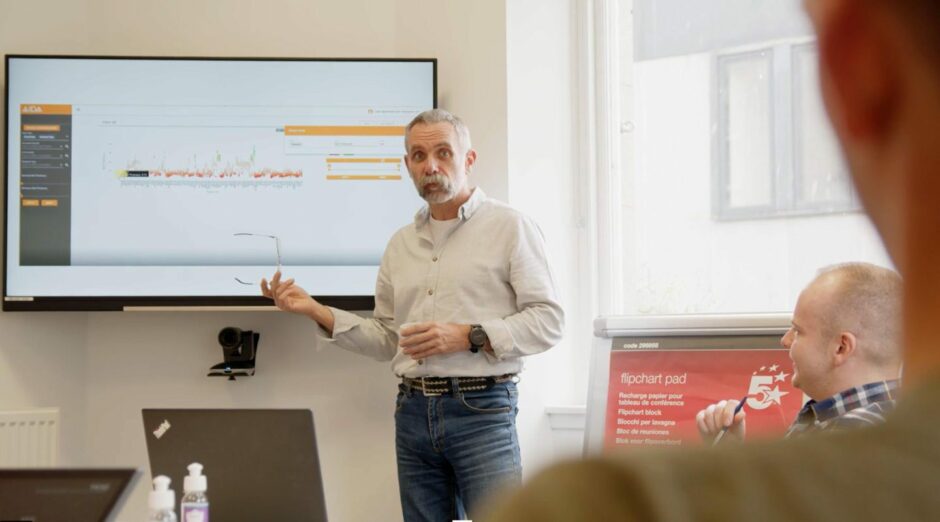
Asset integrity describes an asset’s capacity to run accurately, effectively and efficiently, while protecting the personnel and environment with which it interacts.
When considering asset integrity, the constant challenge for businesses and asset integrity managers is figuring out how to balance the costs of business with the maintenance and degradation of assets.
How can oil and gas companies keep up with ageing infrastructure and an ever-changing landscape in the industry? Companies like IMRANDD are at the forefront of data science, artificial intelligence (AI) and the benefits the industry can reap from its approach.
Asset Integrity, Asset Management, Engineering and Consultancy Services
IMRANDD are a global asset integrity, asset management, engineering and consultancy services company that was born from a desire to disrupt the way the industry manages asset integrity while improving asset performance and profitability. IMRANDD was created to break the cycle of perfunctory and inefficient inspections and to help asset owners manage integrity efforts from both a commercial and engineering perspective.
The importance of Data Science and Data Analysis today
Innes Auchterlonie, CEO of IMRANDD, described the importance of data science and analysis in the industry today: “Simply, employing data science can improve risk management, reduce emissions, lower cost, and improve profitability, and is increasingly seen as an essential part of the operation of any large plant. Indeed, industrial data analytics itself is now a multi-billion-pound sector in the UK alone and continues to grow exponentially.
“However, the perception in O&G is often that although the benefits are clear the barriers to adoption are too high.”
There are several reasons for this belief – there’s often doubt that the data gathered is reliable and accurate. Inaccuracies may be caused by factors such as human error (eg an error in measurement), inconsistencies or disparities in the way data is recorded, as well as system limitations.
The sheer volume of data, its varying format and often unstructured storage can also contribute to the feeling that the effort required to carry out meaningful analysis is simply too high.
Innes and the team at IMRANDD are adamant that this is no longer true, and they have a track record that can prove it.
“Of course, an important part of data analysis is having confidence in the data you are working with,” Innes said .
“Not only must data be collected, but companies must understand the limitations and how it may be flawed, what you can trust and, as far as possible, cleanse and correct it. This helps you identify meaningful information that would have otherwise been lost.”
Better decisions, greater efficiency, increased profitability and improved risk and safety
That’s why IMRANDD develops advanced techniques not only in data analysis but for rapidly collating data that would normally be siloed or impossible to view together in a holistic way. Why? IMRANDD believes that good decisions are informed decisions, and informed decisions have a basis in reliable data, ideally presented in ways that are easy to understand. Ultimately, this leads to greater efficiencies, increased profitability and most importantly, an improved risk and safety profile.
Innes said: “We (IMRANDD) can pull that data together and transform it into something that’s usable – in a way that was previously impossible.
“Asset integrity management should always be about finding the most cost-effective way to safely maintain assets that form a business’s profit centre. Decisions should be driven by considering business and engineering principles. However, too often a lack of knowledge and uncertainty drives conservatism which impacts short and long-term profitability, and unfortunately leaves safety and environmental risk misunderstood.”
Asset Integrity and Artificial Intelligence, AI for AI
Asset integrity management is a critical part of running any industrial or large plant and is particularly relevant for safety critical industries such as oil and gas. Nonetheless, it remains plagued by problems such as cognitive bias, groupthink, and highly subjective risk management.
“Using machine learning to identify patterns in data that engineers may miss can be incredibly powerful. ChatGPT-like large language models can cut through subjectivity and differences in reporting language to find and collate key information. We’ve even delved into psychological research in collaboration with the University of Western Scotland to overcome bias in assessments, to advance analysis techniques to ultimately enable safer, more efficient asset management,” said Innes.
Looking to future of oil and gas industry
Other industries have started to implement these advanced technologies and Innes is confident about the oil and gas industry: “We can improve our understanding and look at the ways where we can improve operations. If we improve safety and reliability, you improve profitability by default.”
Using AI, refining tools, and taking a “smarter” approach to data review and analysis, IMRANDD is shaping the future of data analysis, AI and asset integrity in the oil and gas industry and beyond.
Recommended for you
